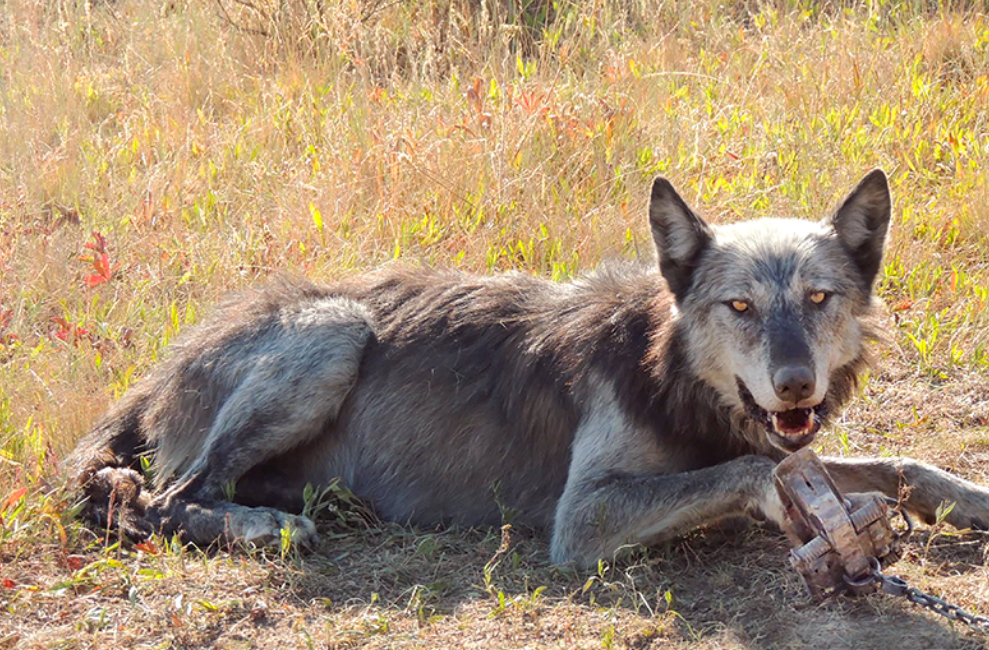
- Details
- By Levi Rickert
WASHINGTON — Tribal leaders from throughout Indian Country are putting pressure on Interior Secretary Deb Haaland (Laguna Pueblo) to restore gray wolves to the federal government’s Endangered Species List
More than 200 tribal leaders representing tribes and advocacy organizations sent a letter to Haaland on Tuesday demanding emergency relisting of gray wolves.
Want more Native News? Get the free daily newsletter today.
Today, the gray wolf is functionally extinct in more than 80 percent of its historic range, with only 6,000 surviving in the United States. Wolves figure prominently in the folklore of nearly every Native American tribe. In most Native cultures, the wolf is considered a sacred medicine being associated with courage, strength, loyalty, and success at hunting, according to the letter.
The leaders want Haaland to overturn a 2020 Trump administration decision to delist gray wolves from the Endangered Species List, which is administered by the U.S. Fish and Wildlife Service, an agency that operates within the Interior Department
In the letter, the leaders urge Haaland to immediately act upon the emergency petition filed on May 26, 2021 to relist the gray wolf as endangered or threatened under the Endangered Species Act (ESA). The emergency petition would grant temporary protections to wolves for 240 days.
“The failure to take action here, thus ignoring the concerns of tribal nations, would signal to Indian Country that President Biden’s promises to Indian Country are hollow,” the letter states.
“The Trump Administration and his sycophant Interior Secretary Bernardt wrongfully delisted our sacred brother “Maegun’ without consultation with tribal nations and without any clear demonstration of related science that includes wolf habitat,” Sault Ste. Marie of Chippewa Indians Chairperson Aaron Payment said to Native News Online. “I am giving the benefit of the doubt that Secretary Haaland cannot simply undo an administration action of a previous administration. However, I am looking to Secretary Haaland to care about the wolves as much as she stated during her Senate confirmation hearing that she, ‘cares about the bears.’”
“If this comes about as a pre-conference during litigation or some emergency and temporary measure while Consultation is revisited, then wonderful,” Payment, who also serves as first vice president of the National Congress of American Indians (NCAI), continued.
Cheyenne River Sioux Tribe Chairman Harold Frazier wants to see more than mere lip service to tribal consultation by the Biden administration.
“The Biden administration has given lip service to questions of tribal sovereignty, with an executive order mandating tribal consultation. We urge the administration to honor its commitment by adopting the emergency wolf relisting measure so that sovereign tribal governments can be consulted in the question of permanent relisting or delisting,” Frazier said.
“By delisting the wolf without the consent and consultation of tribal Nations, the federal government continued a pattern of ignoring tribal sovereignty, skipping tribal consultation when convenient for the trustee, and violating sacred treaty and trust obligations. We ask that Secretary Haaland act on our request to meet with her, and honor treaty obligations towards Tribal Nations by granting emergency protection for the wolf,” President Andy Werk, Jr. of the Ft. Belknap Indian Community Council added.
The letter also requests a meeting with Secretary Haaland to discuss these matters. A source who asked not to be identified told Native News Online that a meeting is set with Haaland during the last week of September to discuss the issue.
More Stories Like This
Native News Weekly (August 25, 2024): D.C. BriefsUS Presidents in Their Own Words Concerning American Indians
Rep. Grijalva Pepper-Sprayed by ICE Agents During Restaurant Raid
Next on Native Bidaské: Preserving Indian Health with A.C. Locklear
Hozhonigo Institute Helps Drive $34.5M in Grant Pipeline for Tribal Communities
Help us defend tribal sovereignty.
At Native News Online, our mission is rooted in telling the stories that strengthen sovereignty and uplift Indigenous voices — not just at year’s end, but every single day.
Because of your generosity last year, we were able to keep our reporters on the ground in tribal communities, at national gatherings and in the halls of Congress — covering the issues that matter most to Indian Country: sovereignty, culture, education, health and economic opportunity.
That support sustained us through a tough year in 2025. Now, as we look to the year ahead, we need your help right now to ensure warrior journalism remains strong — reporting that defends tribal sovereignty, amplifies Native truth, and holds power accountable.
 The stakes couldn't be higher. Your support keeps Native voices heard, Native stories told and Native sovereignty defended.
The stakes couldn't be higher. Your support keeps Native voices heard, Native stories told and Native sovereignty defended.
Stand with Warrior Journalism today.
Levi Rickert (Potawatomi), Editor & Publisher

